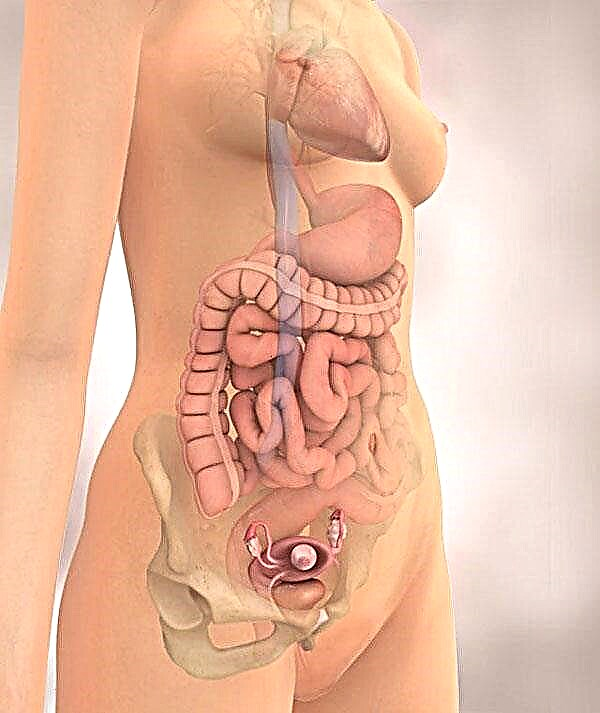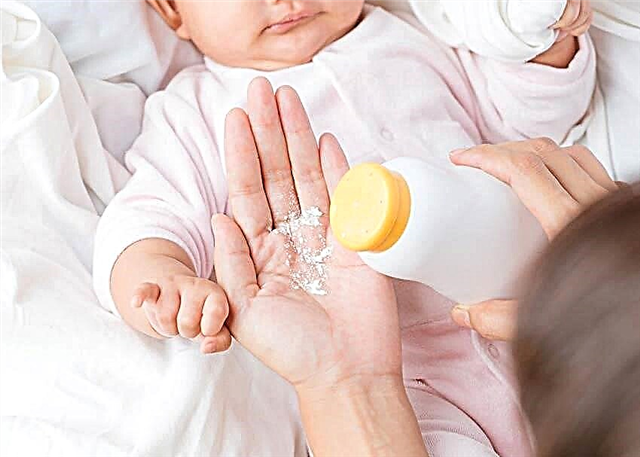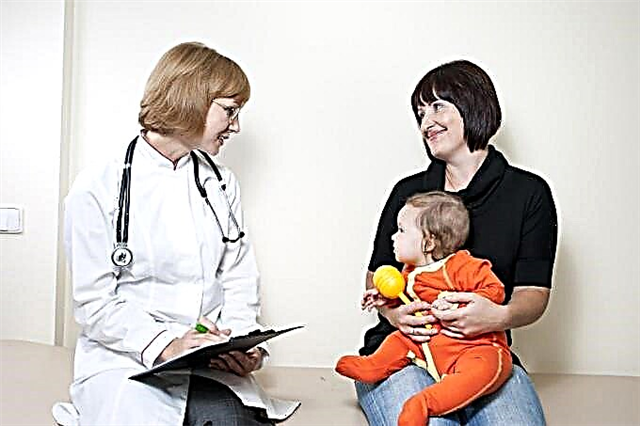The 8th week of pregnancy in the life of the expectant mother differs little from the previous, 7th week. But for the baby, every day is still important. It should be so. After all, a child literally repeats the evolutionary path from a single cell to a complex organism.

Clarification of the term
How to calculate the gestational age? More about this here. In short, the 8th obstetric week (from the first day of the last menstrual period) is equal to the 6th week from conception.
What happens to mom and baby
At the eighth week, the unborn child is no longer considered an embryo. Now it is a fetus with all internal organs. Of course, all systems of a tiny organism still have to develop and improve for a long time.
The expectant mother may outwardly change, or may remain the same. Everything here is very individual. Although there are some common features. For example, at the 8th week, the uterus of a pregnant woman reaches the size of a large apple or grapefruit. And in the blood there is an active production of three hormones: estrogen, progesterone and prolactin. All of these hormones are doing serious work:
- Prepare the woman's circulatory system to increase the amount of blood. Therefore, the main arteries increase slightly in diameter;
- Weaken the pelvic ligaments. Otherwise, the belly of the expectant mother will not be able to increase in size;
- Prepares the breast for future milk production.
Fetal development
What does the future baby look like now?
It is now about the size of a grape. The tiny body is 14-20 mm long and weighs about 3 g.


The fruit looks more and more like a tiny man. This is facilitated by many processes:
 It is at the 8th week that the tiny heart completes its preliminary development. It becomes four-chambered, like in all mammals;
It is at the 8th week that the tiny heart completes its preliminary development. It becomes four-chambered, like in all mammals;- The first convolutions appear on the hemispheres of the brain;
- The legs are about three times shorter than the handles and slightly lag behind them in development. The toes are still connected by membranes. They are already separated on the handles;
- The formation of the shoulder, elbow and wrist structures ends. Now the baby can bend and unbend the arms;
- The stomach takes up its normal position in the abdominal cavity;
- The folds on the sides of the head suggest where the outer ears will soon form;
- The inner ear is actively continuing its development;
- The baby's tongue and the first taste buds are formed on it;
- The face is indicated more clearly. The outlines of the nose, lips and chin are more and more clearly visible on it. The nose already has tiny nostrils and the rudiments of olfactory receptors;
- The eyes still look like black seeds. However, the pigment that will later determine their color is already there;
- The formation of the ovaries in girls and the testes in boys begins. But in the perineum, only the genital tubercle is still visible. The external genitals will appear later;
- The development of bones and cartilage continues. This process will continue before and after the baby is born. It is fully completed by about 25 years of human life;
- The yolk sac is still involved in the baby's nutrition along with the placenta. She is also developing intensively;
- The body straightens and lengthens a little.
Video: 8 Week of intrauterine life:
Uzi

An ultrasound scan at obstetric week 8 can give very different "pictures". It all depends on the position of the baby, which is constantly changing, and on the equipment itself. On a black background of the uterine cavity, an oblong body of a crumb can be seen. Or just a white, almost round speck - it means that the fetus has turned its head towards the scanner.
By the end of the 8th week, all the main internal organs of the fetus are formed. Now their further development and improvement is ahead.
Feelings of a future mother

The missed period has been lasting for more than two weeks. At the eighth obstetric week, pregnancy has already been confirmed. Sometimes even in several ways. If the expectant mother already had toxicosis, then for sure it will continue. Or it may start, if the woman has not felt anything like this before. The main components of toxicosis:
- nausea (most often in the morning, but it happens throughout the day);
- heartburn and belching;
- vomiting;
- change in taste preferences;
- increased or, conversely, loss of appetite;
- diarrhea or constipation.
If there is still no obvious toxicosis, there is no need to think about something bad. The happiest mothers may not even know what it is!
But even without any toxicosis, some changes are quite noticeable:

- The breasts may enlarge greatly (one size or more). Vessels on each breast become more visible and the skin of the nipples may darken.
- Even at a short time, the uterus begins to press on the bladder, so visits to the toilet become more frequent.
- The increased activity of the mucous membranes causes increased salivation. A runny nose of pregnant women may appear: a feeling of nasal congestion without obvious signs of a cold.
- Emotional instability: mood swings, sensitivity.
- Constant fatigue, drowsiness.
- Acne or blackheads may "pop out". But it also happens the other way around - the skin becomes soft, smooth and incredibly pleasant to the touch.
- The grown uterus can affect the sciatic nerve, which causes pain in the pelvic region and hips.
And the expectant mother may well begin to excrete colostrum. If this happens, spacers will be required. In no case should you express colostrum! Another completely normal occurrence is false (training) contractions. They are manifested by short-term tension in the lower abdomen. If there is no bleeding or pain, there is nothing to worry about.
Problems and complications
Allocations:
- At obstetric week 8, mucous membranes, clear or white, are considered normal vaginal discharge.
- Slight brown discharge is allowed, but it is imperative to inform your doctor about it.
- Bloody discharge or bleeding is a signal of a possible threat of miscarriage. This condition requires immediate medical attention.
Fading pregnancy:
If the toxicosis suddenly, abruptly stops - perhaps we are talking about the fading of pregnancy. In this case, the fetus dies, but is not rejected by the uterus. If the pregnancy really froze, the diagnosis and action will be taken in the antenatal clinic and in the hospital.
Severe toxicosis:
Severe toxicosis can drain the strength of the expectant mother. In addition, vomiting can lead to severe dehydration. You need to go to the doctor if:
- vomiting occurs more often than twice a day;
- food is not digested for more than a day;
- constant weakness is felt;
- marked weight loss.
On this topic: all about toxicosis
Pain in the abdomen and lower back:
Mild pain in the abdomen and lower back is due to hormonal and physical changes. But if the lower back and / or abdomen hurt intensely, this may mean a threat of miscarriage.
Ectopic pregnancy:
An ectopic pregnancy manifests itself earlier. Therefore, at the 8th obstetric speech, this condition is no longer discussed.
Why do pregnancy complications occur? Main reasons
- genetic abnormalities;
- radiation (for example, X-rays);
- nicotine and / or alcohol;
- some bacterial and viral infections;
- a number of drugs;
- lifting and carrying weights;
- severe overheating (for example, when sunbathing or in a sauna).
In the first trimester of pregnancy, any negative impact affects the entire fetus, all its internal organs and systems.
If pregnancy is unwanted, this is also a complication. True, not the pregnancy itself, but the entire existence of a woman. There are circumstances in which she has the right to say “no” to a small life. But if the baby is not destined to be born, the termination of pregnancy must be carried out as early as possible. And only in a medical facility. Abortion is a simple procedure, but difficult for the female body. Therefore, the decision to terminate a pregnancy should be highly responsible and conscious.
Visit doctor
If the expectant mother has not yet begun her examination, then at the 8th week it is already time to go to the doctor. There are many diseases in the world that last a long time without external manifestations. The examination will help to detect possible problems in time and prevent complications.

The woman will be tested for blood, urine, and a smear from the vagina. What will be checked?
- general condition of the body (level of hemoglobin, various blood cells, sugar);
- blood group and Rh factor;
- presence / absence of HIV, AIDS, syphilis, genital infections.
The gynecologist will measure the future mother's pelvis, height and weight, and give a preliminary conclusion on the health status of the woman and the future baby. In addition, he will refer the patient to other specialists - therapist, ophthalmologist, dentist, venereologist and ENT specialist.
It is imperative to be examined by these doctors. Each of them will check the condition of the expectant mother according to their parameters and indicate possible complications. For example, if a woman suffers from periodontal disease, the disease may worsen during pregnancy and after childbirth. And very poor vision or high intraocular pressure can be indications for a planned cesarean section.
Prevention of a possible Rh-conflict is especially important. If future parents have a different Rh factor, this can adversely affect the future baby due to the accumulation of special antibodies. This is another reason not to delay going to the doctors.
[sc: rsa]
An expectant mother needs to be prepared for a lot of questions. Now doctors are required not only to examine a woman, but also to find out in what conditions she lives and works. For example, if the working conditions are harmful, the expectant mother must be transferred to another position. And if a woman has seriously ill people at home, this is also a cause for concern. The doctor may ask all household members of the expectant mother to undergo fluorography or bring certificates of the last study performed.
What else will the doctors ask?
- Which is a pregnancy.
- Which is due to the expectation of childbirth.
- Time of the last period.
- What was the menstrual cycle like before pregnancy?
- Have there been abortions, miscarriages, ectopic pregnancy.
The expectant mother definitely needs to tune in to regular visits to doctors.
Recommendations
- Correct nutrition. Fried, spicy foods, canned foods and smoked meats should be excluded. Baking will have to be limited. You need to steam (or bake) food. Vegetables and fruits should make up at least a third of the diet. Sweets - only natural (for example, candy). To improve digestion - cereals and dairy products.
- Vitamins and medicines - only as prescribed by a doctor.
- Alcohol and cigarettes should be a thing of the past. It is very important to avoid secondhand smoke as well.
- What is the expectant mother wearing? All kinds of "hairpins" will have to be postponed until better times. Shoes should have a minimal and stable heel. It is very important that the soles do not slip. You need to be careful not only on snowy paths, but also on tiled floors - they can be quite slippery.
- Sexual life can be unrestricted if it is enjoyable. In this case, there are three contraindications: the threat of miscarriage, multiple pregnancy and the unwillingness of the expectant mother herself.
- With one-sided pain in the pelvic region and lower back, you need to lie on the opposite side. Here we are talking about pinching the sciatic nerve, in the supine position it is released faster.
- Emotions are only positive. There is no need to watch frightening and / or dramatic films, read books of heavy content. If something unfavorable happens in life, you need to think first of all about the baby. Now mom's excitement makes the baby suffer physically.
Superstition and prejudice
What the expectant mother does not have to hear during the nine months of pregnancy! There are so many advisors around! You can literally get lost in the recommendations of others. Whom to believe and whom not to listen to? Let's try to understand the basic "tips".
A smoking mom shouldn't suddenly give up cigarettes. The child is already used to nicotine and will feel bad.
The expectant mother is used to nicotine. And she has already done herself a lot of harm. And with the onset of pregnancy, each new cigarette causes irreparable damage to the baby. If pregnancy is planned, giving up bad habits should take place long before conception. In case of an unplanned, but saved pregnancy, you should quit smoking immediately, preferably forever.
A glass of good natural wine won't hurt.
Even natural alcoholic drinks are still alcohol. Its harm to the fetus has long been well proven.
The husband should not show his weakness, poor health or coldness to sex. The wife should always be beautiful, cheerful and friendly.
Another statement from the depths of patriarchy. Sincerity is important between spouses. A good future father will not grimace with disgust if his beloved woman vomits with him. And the fear of intimate life will only become stronger and turn into a problem if you keep silent about it.
Pregnant women should not cut their hair - the child will miss something (fingers, for example).
Superstition in its purest form. Hair is made up of cells of the same type as nails. Their pregnant women cut their hair at all times. Therefore, if the expectant mother wants to change her image and get a haircut, there are no obstacles to this. But about hair coloring, it is better to consult a doctor first.
We also read: Myths, horror stories and misconceptions about pregnancy and childbirth. Best Selection: 63 Myths
The happiness and well-being of the expectant mother is the health and proper development of the baby.
← 7 week 9 week →

 It is at the 8th week that the tiny heart completes its preliminary development. It becomes four-chambered, like in all mammals;
It is at the 8th week that the tiny heart completes its preliminary development. It becomes four-chambered, like in all mammals;

